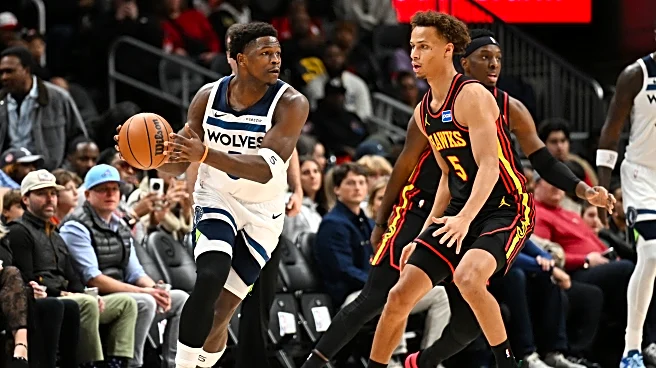What's Happening?
Coca-Cola has reported a 6% increase in organic revenue for the third quarter, reaching $12.41 billion, driven by sales of premium beverages and mini cans. Despite a challenging demand environment, the company
has seen higher-income consumers in North America and Europe opting for its premium brands like Smartwater and Topo Chico. Coca-Cola's strategy includes introducing 7.5-ounce mini cans at a suggested retail price of $1.29 to maintain affordability. The company also announced a significant refranchising deal in Africa, selling a 75% stake in Coca-Cola Beverages Africa to Coca-Cola HBC AG for $2.55 billion, while retaining a 25% stake.
Why It's Important?
Coca-Cola's financial performance highlights the company's ability to adapt to varying consumer demands and economic pressures. The strategic focus on premium products and smaller packaging sizes caters to diverse consumer segments, potentially stabilizing revenue streams. The refranchising move in Africa aligns with Coca-Cola's long-term strategy to focus on brand building and innovation, while allowing bottlers to enhance manufacturing capabilities. This could lead to increased profitability and growth for Coca-Cola's global operations. The company's performance and strategic decisions are crucial for investors and stakeholders monitoring the beverage industry's response to economic challenges.
What's Next?
Coca-Cola plans to continue its focus on premium products and affordability strategies, with the mini cans set to hit North American convenience stores in January. The refranchising deal in Africa is expected to close by the end of 2026, potentially impacting Coca-Cola's market presence and operational efficiency on the continent. Investors and industry analysts will likely monitor the company's ability to maintain revenue growth amidst economic pressures and its strategic execution in refranchising efforts.









